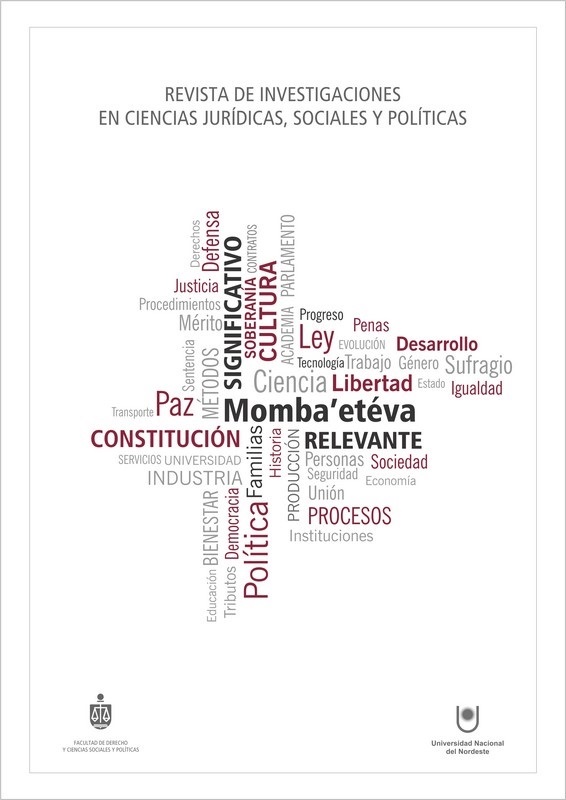PRE-JUICIOS EN EL JUZGAMIENTO DE LA CRIMINALIDAD ECONÓMICA
DOI:
https://doi.org/10.30972/mom.114540Palabras clave:
Delito económico, criminalidad económica, criminal de cuello blanco, sesgos cognitivos, prejuicios judiciales, proceso penalResumen
En esta oportunidad se pretende describir, en primer término, algunas apreciaciones teóricas que explican la ausencia de objetividad en el enjuiciamiento del delito económico. Tanto en un sentido favorable como negativo, en la praxis judicial se presentan algunos sesgos y heurísticas al momento de atribuir la culpabilidad criminal a los autores de la criminalidad económica. En segunda instancia, se realiza una propuesta para contrarrestar algunos típicos pre-juicios en el juzgamiento de la criminalidad económica.
Citas
Alonso Gallo, Jaime, Las decisiones en condiciones de incertidumbre y el Derecho pe-nal, 4 InDret Penal, 1-30 (2011).
Allen, Derek, Ethical argumentation, objectivity, and bias, 82 OSSA Conference Ar-chive, 1-8 (2016).
Allison, Scott y Messick, David, The group attribution error, 21 Journal of Experimental Social Psychology, 563-579 (1985).
Bennett, Mark y Plaut, Victoria, Looking criminal and the presumption of dangerous-ness: afrocentric facial features, skin tone, and criminal justice, 51 (3) UC Davis Law Review, 745-803 (2018).
Bernal Sarmiento, Camilo, Cabezas Chamorro, Sebastián, Forero Cuéllar, Alejandro, Rivera Beiras, Iñaki y Vidal Tamayo, Iván, Debate epistemológico sobre el daño social, los crímenes internacionales y los delitos de los mercados, 2 (6) Revista de Derecho Penal y Criminología, 49-73 (2012).
Braithwaite, John, Paradoxes of class bias in criminal justice, en: Pepinsky (ed.), Re-thinking Criminology, Beverly Hills, 61-84 (1982).
Cullen, Francis, Hartman, Jennifer y Jonson, Cheryl, Bad guys: why the public supports punishing white-collar offenders, 51 Crime, Law and Social Change, 31-44 (2009).
Dimitropoulos, Georgios y Hacker, Philipp, Learning and the law: improving behavioral regulation from an international and comparative perspective, 25 (2) Journal of Law and Policy, 473-548 (2018).
Fischhoff, Baruch, Debiasing, en: Kahneman, Slovic, Tversky (eds.), Judgment under uncertainty: heuristics and biases, Cambridge, 422-444 (1982).
Fischhoff, Baruch, For those condemned to study the past: heuristics and biases in hind-sight, en: Kahneman, Slovic y Tversky (eds.), Judgment under uncertainty: heuristics and biases, Cambridge, 335-351 (1982).
Fischhoff, Baruch, Hindsight ≠ foresight: the effect of outcome knowledge on judgment under uncertainty, 1 (3) Journal of Experimental Psychology, Human Perception & Per-formance, 288-299 (1975).
Hagan, John y Parker, Patricia, White-collar crime and punishment: the class structure and legal sanctioning of securities violations, 50 (3) American Sociological Review, 302-316 (1985).
Haselton, Martie, Nettle, Daniel y Murray, Damian, The evolution of cognitive bias, en: Buss (ed.), Handbook of Evolutionary Psychology, 2da. ed., New Jersey, 968-987 (2016).
Katz, Jack, The social movement against white-collar crime, en: Bittner y Messinger (eds.), 2 Criminology Review Yearbook, Beverly Hills, 161-184 (1980).
Levinson, Justin, Bennett, Mark y Hioki, Koichi, Judging implicit bias: a national empir-ical study of judicial stereotypes, 69 (63) Florida Law Review, 63-113 (2017).
Muñoz Aranguren, Arturo, La influencia de los sesgos cognitivos en las decisiones ju-risdiccionales: el factor humano, 2 InDret Penal, 1-39 (2011).
Nickerson, Raymond, Confirmation bias: a ubiquitous phenomenon in many guises, 2 (2) Review of General Psychology, 175-220 (1998).
Posner, Richard, Optimal sentences for white-collar criminals, 17 American Criminal Law Review, 409-418 (1980).
Prittwitz, Cornelius, Sonderstrafrecht Wirtschaftsstrafrecht? 5 Zeitschrift für Internationales Strafrechtsdogmatik, 217-220 (2012).
Pronin, Emily, Lin, Daniel y Ross, Lee, The bias blind spot: perceptions of bias in self versus others, 28 (3) Personality and Social Psychology Bulletin, 369-381 (2002).
Rachlinski, Jeffrey, A positive psychological theory of judging in hindsight, 65 (2) The University of Chicago Law Review, 571-625 (1998).
Resnik, Michael, Choices: an introduction to decision theory, Minnesota, (1987).
Rodríguez Celada, Enrique, La criminalización del fracaso empresarial. Análisis crítico de la reforma del Código penal de 2015 en relación con el delito concursal, 1 InDret Penal, 1-41 (2017).
Ruiz Miguel, Alfonso, Creación y aplicación en la decisión judicial, 1 Anuario de Filo-sofía del Derecho, 7-31 (1984).
Simon, Herbert, Decision making in business organizations, 69 (4) The American Eco-nomic Review, 493-513 (1979).
Simon, Herbert, Reason in human affairs, Oxford, (1983).
Sutherland, Edwin, Is ´white-collar crime´ crime? 10 (2) American Sociological Review, 132-139 (1945).
Sutherland, Edwin, White-collar criminality, 5 (1) American Sociological Review, 1-12 (1940).
Thorndike, Edward, A constant error in psychological rating, 4 Journal of Applied Psy-chology, 25-29 (1920).
Tversky, Amos y Kahneman, Daniel, Judgment under uncertainty: heuristics and biases, 185 Science, 1124-1131 (1974).
Valldecabres Ortiz, María Isabel, Imparcialidad del juez y medios de comunicación, Valencia, (2004).
van Slyke, Shanna y Bales, William, A contemporary study of the decision to incarcerate white-collar and street property offenders, 14 (2) Punishment & Society, 217–246 (2012).
Varela, Lorena, ¿Garantías para quién en el Derecho penal contemporáneo?, 9266 Diario La Ley, 25 de septiembre, 1-27 (2018).
Varela, Lorena, Un esbozo sobre los modelos de la racionalidad humana en el juicio de imputación del tipo penal, 19 (2) Revista Electrónica de Ciencia Penal y Criminología, 1-20 (2017).
Weisburd, David, Waring, Elin y Wheeler, Stanton, Class, status, and the punishment of white-collar criminals, 15 (2) Law & Social Inquiry, 223-243 (1990).
Wheeler, Stanton, Weisburd, David y Bode, Nancy, Sentencing the white-collar offend-er: rhetoric and reality, 47 American Sociological Review, 641-659 (1982).

